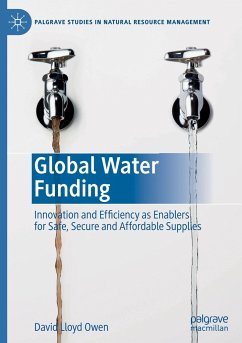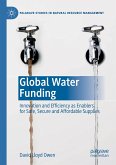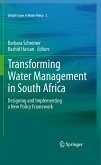Is safe and sustainable water and sanitation for all an unaffordable pipedream? This book surveys the worldwide development of water and sewage services and the challenges in meeting Sustainable Development Goal 6 (SDG6) along with climate change, population growth and urbanisation. It explores the reasons why current SDG6 progress is failing, including weak policy implementation, staff shortages and inadequate funding, as well as the limited impact of aid funding. The author contends that despite a series of innovations, debt finance remains too small to address needs of developing economies. Therefore, instead of advocating new funding, this book proposes addressing the funding gap through technological innovation and more efficient management and procurement through a series of examples that have challenged traditional assumptions.
After four decades of good intentions, SDG6 is making a difference in monitoring shortfalls for the first time, allowing for more effective responses. This book outlines the role of innovation in hardware development, procurement and installation, and discusses how network management and operations can most effectively address funding gaps. The potential for savings is considerable, if effectively replicated. New approaches are driving forward affordable resilience, including nature-based solutions such as upstream habitat enhancement to retain water and improve downstream water quality; the circular economy, including water, nutrient, energy and heat recovery from wastewater; and demand management. This book will be of great value to scholars, policy makers and practitioners interested in the global finance of sustainable water and sanitation.
After four decades of good intentions, SDG6 is making a difference in monitoring shortfalls for the first time, allowing for more effective responses. This book outlines the role of innovation in hardware development, procurement and installation, and discusses how network management and operations can most effectively address funding gaps. The potential for savings is considerable, if effectively replicated. New approaches are driving forward affordable resilience, including nature-based solutions such as upstream habitat enhancement to retain water and improve downstream water quality; the circular economy, including water, nutrient, energy and heat recovery from wastewater; and demand management. This book will be of great value to scholars, policy makers and practitioners interested in the global finance of sustainable water and sanitation.








